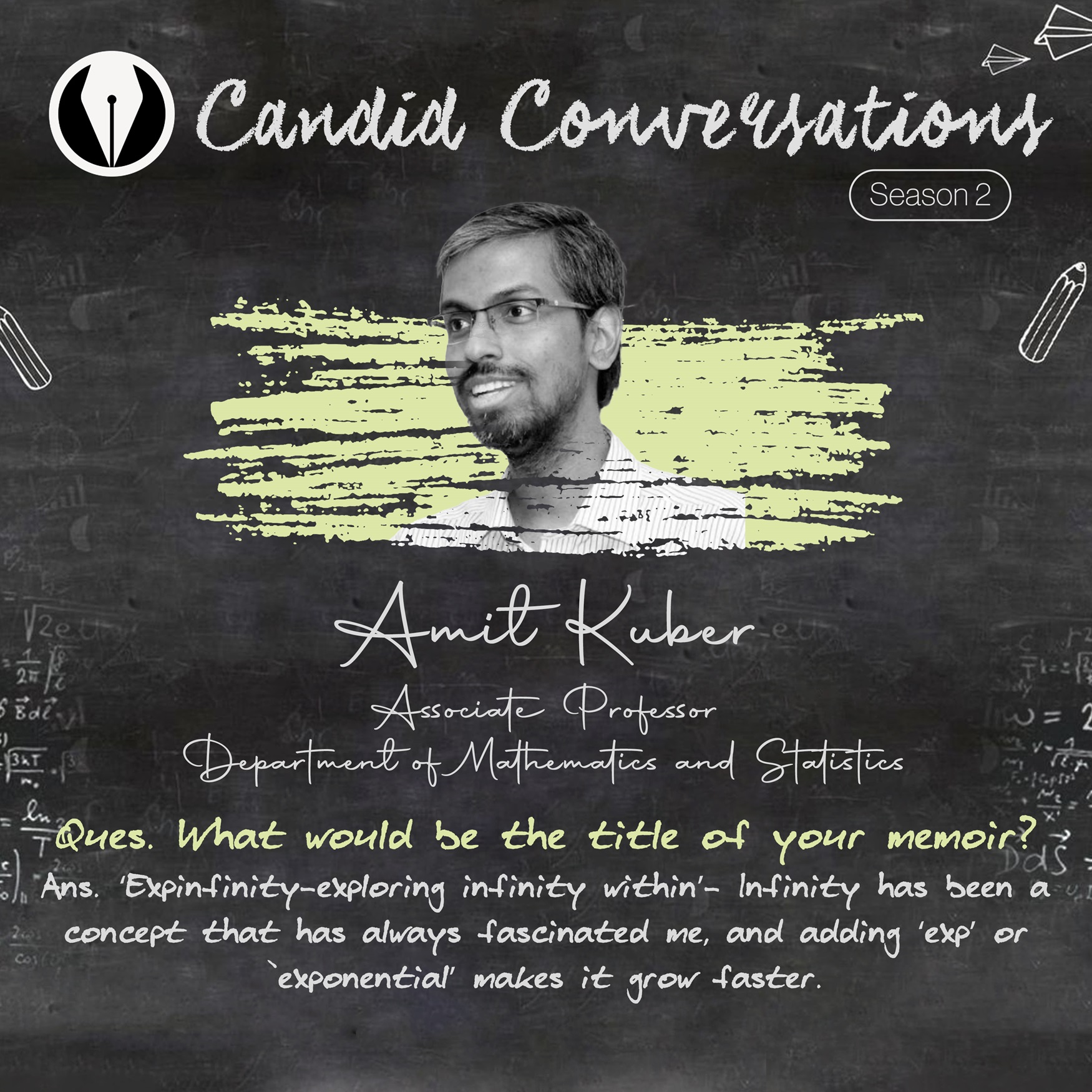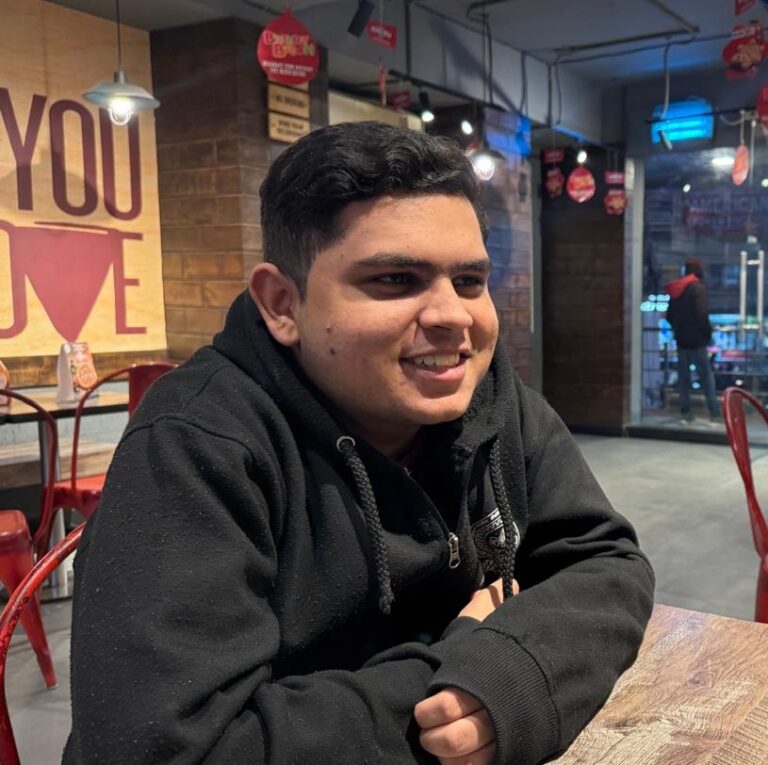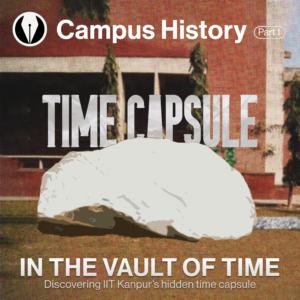Disclaimer: Vox Populi, IIT Kanpur, is the exclusive owner of the information on this website. No part of this content may be duplicated, paraphrased, or interpreted in any other way without written consent from Vox Populi. If you want to reproduce any of the content on this page, please contact our chief editors directly or reach out to us by email at voxpopuli@iitk.ac.in
Have you ever wondered about the lives of your professors beyond the lecture halls and labs? Were they just like us as students? What paths might they have taken if not for academia?
Vox is back with Season 2 of Candid Conversations with Professors @IITK, where our professors share their journeys, interests, and unfiltered insights into life at IITK and beyond. Here’s the first part—stay tuned for the next parts, featuring some of our other professors, with different stories!
In part 2 of this season, we join Professor Amit Kuber from the Department of Mathematics and Statistics, whose journey in life is marked by both passion and perseverance. From hosting impromptu game shows in his school days to becoming a mentor and a role model for his students, his commitment to learning and teaching has remained steadfast. In this interview, he also touches upon his love for music and Pokemon showdown, his affinity to infinity, and his desire to help students beyond the classroom.
How were you as a student?
Studious plus involved in extracurricular activities. I liked arranging game shows. I started this when I was in school. One time when 31st December was around the corner, I dug out some old clothes of my father and hosted a KBC-like tournament in our apartment. Even in my college times, students used to participate, and teachers used to be judges; it was fun.
Any favorite spot you have on campus?
One could say my office, I spend a lot of my time here. Spots depend on memories. When I stand on the balcony, I remember my first PhD student, Shantanu. Whenever it rained, we used to watch it from there.
What are some hobbies and activities that you enjoy in your free time?
I generally do not have much free time. But, I like to practice music, especially when I have company. Pokémon Showdown is my hobby. I used to participate in anime society tournaments here but haven’t gone in the last couple of years.
Any campus lingos you are aware of?
People generally try to avoid using them in front of me though I had a couple of students who talked to me in that language. My first-ever student on campus, Harshit, told me a lot of lingos.
What would be the title of your memoir?
I am not that old to think of my memoir, but it would be ‘Expinfinity-exploring infinity within’- Infinity has been a concept that has always fascinated me, and adding ‘exp’ or `exponential’ makes it grow faster.
What are some changes you have seen in IITK throughout your tenure?
The number of students has increased, but the number interested in studies has either remained the same or has declined. Many students from the Y13 and Y14 MTH batches went for higher education. Now that number has gone down to 1 or 2. That change haunts me. I try my best to do something about it.
Also, the number of peacocks has decreased. I used to wake up because of peacocks when I initially came to the campus. Now I can hardly hear them. The size of the forest area has also decreased. The amount of infrastructure has increased, yet due to the large number of students, now there isn’t enough place to hold exams. The LHC staff is helpful, but the space is inadequate.
Any places that you want to travel to?
I haven’t thought of that. Even when I was studying abroad, my family supported me for food and accommodation, and I was very conscious about never spending a single pound unnecessarily. But whenever I go to any place, I try to live like the locals. I don’t like to go on tours. Places have to be explored being with the locals, not like a tourist.
As a Professor, what are some rewards and challenges that you have experienced?
The reward is that people open up. They share their problems & joys. If someone needs me to be present somewhere, I’m always there. The greatest joy is that I can be of some help, especially to students.
As far as challenges are concerned, investing a lot of time and energy without worrying about consistent output is not encouraged. Also, as a researcher, I can’t put a tag on myself. In my master’s, PhD, and postdoc, I didn’t work only on a single topic. Finding an identity as a mathematician and switching between different roles on a daily basis has also been challenging.
Any common myths about professors that are not true?
Recently a fresher told me that several students think that the instructors for large courses only teach while the rest of the work is handled by TAs and office staff. This is a myth since an instructor-in-charge has to work hard on all fronts–setting question papers, making seating arrangements, and handling administration, including email communication. They cannot completely rely on their TAs or office staff, since they need to own the responsibility for every mistake committed by any of their teammates!
Students generally need to remember that professors are also humans. They have their own set of challenges and problems, and they are also trying to do something good for the students. Here, the reputation of a professor usually only depends on whether they grade well or not. Now that shouldn’t be the case. I feel like learning should be given more priority than just grading. The final outcome of a course is not a single letter that you get; it’s what you learn and the skills you develop in the process. Professors who are trying to be strict, say about grading or discipline in the class, have broader goals in mind. They want to see their students grow in multiple dimensions. Nobody wants to bother students on purpose. Maybe professors don’t communicate enough about what they are trying to achieve, but through proper communication, I feel that this problem can be resolved.
Students have a lot of expectations. If you get zero marks and you’re expecting that I should pass you just because there are other people doing so, that is not fair. Some standards should be maintained. Sometimes we need to become a stone-hearted person while making hard decisions because students only learn through experience. Achievements should be celebrated, and poor performance needs to have repercussions in your life. We can’t all be too generous and spread positivity through marks!
If you could have dinner with any three people, dead, alive or fictional, who would they be?
I have watched a lot of television as well as movies. Ash Ketchum, who was the protagonist of Pokemon, would be the first. I wasn’t too young when I started watching it, but I followed it for 25 years. Ash likes to help people and is faithful, loyal and caring about his companions.
I am also a big fan of Harry Potter, for he embodies the principle that despite loss, you need to stay on the path of truth. Even though they are fictional characters, I idealized them to some extent because of their qualities.
Finally, Alexandre Grothendieck–the greatest mathematician of the 20th century–who basically lived mathematics. My friend, Sayantan and I are also involved in a long-term project of translating his autobiography into English.
What’s your life philosophy in one sentence?
“Irrespective of your circumstances, do your duty as you ought to!”
Just push on, no matter what is happening. Asha Bhosle shared this philosophy several times in her interviews. I’ve also seen her in person. Her life was tragic, but she always says that whenever she stepped inside a studio, all her worries were outside, and only her voice was inside. I try to follow that to the maximum extent possible.
What is something students do that totally confuses you?
There are so many things. The latest one would be students listening to seniors even if their advice contradicts that of instructors. That definitely confuses me.
Also, I feel like the younger generation is not willing to commit to whatever aspect of life. Fear of commitment is something I feel is a big issue. I’ll tell you one story. I was watching Taskmaster- they usually have some team tasks. Here, 2 teammates were given 2 different letters of instruction, and they did not know what the other one got. One person was told to fill up a bathtub with as many objects as possible, whereas the other person was told to wrap the same bathtub. From the older team, one person actually finished filling up the bathtub with objects and then helped the other one wrap it. On the other hand, members of the young team kept obstructing each other. There was no coordination or synergy, and they did not think about the bigger picture. I went for a session organized by the Counseling service. One girl asked me how she should talk to her peers from the class? I think she was a PhD student. And she told me that even if she asks a simple question to the person sitting next to her, they are not willing to answer because they look at her as a competitor. Not everything is about competition, right? You are living on campus. This is a residential campus, which means you have to live as a family. But people don’t do that. And there is very little cooperation. Everybody is living in fear. And that fear can be of the unknown. That can be fear of missing out, which you call FOMO. Why not make a choice and have the courage to face problems on the chosen path? If you realise that you made a bad choice, then you go back to a fork and make a different choice. People are willing to keep all the options open until the last moment possible and not commit. Yeah, it’s a simple commitment. I wasn’t talking about commitment in the context of relationships, but that’s also an issue!
In the past, if you had an uncle working in a bank and he helped you to get a job in the bank, then you could be employed there until retirement. I’m not suggesting that. But if it gives you time to do something else, pursue a hobby, then that’s not a bad option. There are many singers and music directors who survived that way. For example, a lot of Marathi people like Shrinivas Khale and Mangesh Padgaonkar used to do some menial jobs, but those jobs gave them the opportunity as well as financial stability to pursue alternate careers. The best job is one where you are doing something you like, and somebody’s paying you for that.
What is the most memorable interaction you had with any student?
There are many. One day, we had some elective course presentations going on until 2:00 AM. At that time, I got a call from two of my students who were working with me then. They said they were really excited because they found something new and -wanted to meet immediately. I asked them to come, and we discussed until morning. The residential campus has its perks, and sometimes the boundaries of time just vanish.
Any advice for the student body?
Be a good human. Things that you earn are not necessarily in terms of comfort, luxury or money; in the long term, those things don’t matter.
Interview and Transcription by: Manya Dixit, Ojas Bajpai, Riddhi Shingte
Edited by: Sruthi Subramanian, Vedanshi Aggarwal
Design by: Arnav Gupta, Kanak, Krishna Khetre, Mudita Jalan








